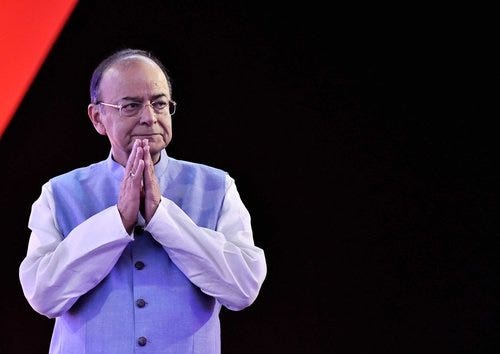The man who tried to unite India’s fragmented economy has died

Arun Jaitley, who served as India’s finance minister for five years until May 2019, passed away on Saturday in New Delhi. He was 66. Jaitley took charge as India’s top economic official in 2014, following Prime Minister Narendra Modi’s victory in an election where he promised to boost growth and create millions of jobs. A lawyer who was once jailed for taking part in student protests, the veteran politician found himself at the center of a firestorm as he implemented Modi’s shock decision to ban 86% of India’s cash in November 2016.The abrupt move sent shockwaves through India’s $2 trillion economy. Gross domestic product growth slumped from 7% to 6% in the six months after the ban as several sectors of the economy ground to a halt.Jaitley repeatedly defended the move as essential to cracking down on tax evasion and promoting digital payments, calling it a “watershed moment” that Indians would look back on with pride even as businesses continued to struggle a year later. “Whether or not history will remember that Mr. Jaitley was trying to pick up the pieces rather than having caused the event itself, is difficult to say,” Pronab Sen, country manager for India at the International Growth Centre and India’s former chief statistician, told CNN Business. Another landmark reform came in July 2017, when India implemented an overhaul of its tax system. A new goods and services tax replaced a complicated web of national and state-level duties, creating a single market in India for the first time since the vast country became independent in 1947. “The old India was economically fragmented. The new India will create one tax, one market and for one nation,” Jaitley said when the reform was passed by parliament. The tax was widely hailed as a game-changer for India’s economy. The International Monetary Fund said it could eventually add nearly two percentage points to India’s growth. But many businesses struggled to adapt and said the new system was too complicated. The government has made several changes in the last two years in an effort to further simplify it. “The crowning glory of course was getting the [goods and services tax] done, I think that will be his real legacy,” Sen said.Jaitley’s deteriorating health — he had a kidney transplant in May 2018 — forced him to opt out of Modi’s second government a year later, shortly after the Indian leader won re-election by a landslide. “I would in future, for some time, like to keep away from any responsibility,” Jaitley said in a letter to Modi. “This will enable me to concentrate on my treatment and health.” Jaitley was a longtime member of Modi’s right wing Bharatiya Janata Party, or BJP. He was elected president of the University of Delhi in 1974, representing the party’s youth wing. He was jailed the following year for protesting the state of emergency imposed by then-Prime Minister Indira Gandhi, and spent 19 months behind bars. He served as India’s law minister and minister of shipping in a previous BJP government in the early 2000s, and also briefly oversaw defense and corporate affairs during Modi’s first term. “I have lost a valued friend, whom I have had the honor of knowing for decades,” Modi tweeted on Saturday. “His insight on issues and nuanced understanding of matters had very few parallels.”






